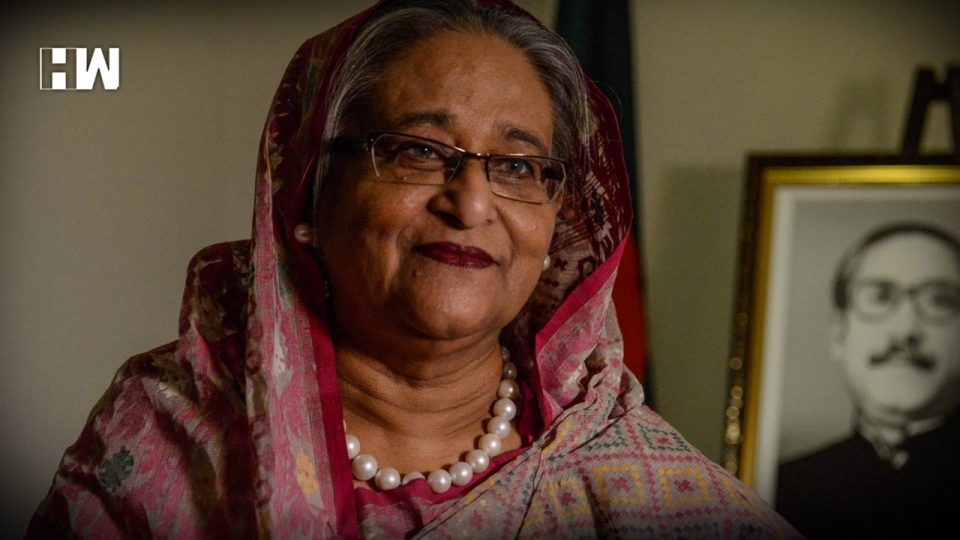Dhaka | Bangladesh’s iron lady Sheikh Hasina, who won a historic fourth term as prime minister becoming the country’s longest-serving leader, is credited by her supporters for the Muslim-majority nation’s impressive economic growth, but her opponents see her as an authoritarian who stifled the Opposition.
Hasina, the daughter of Bangladesh’s founder Bangabandhu Sheikh Mujibur Rahman, won the 11th parliamentary elections with a landslide victory even as the Opposition rejected the “farcical” polls marred with violence that claimed 18 lives, making it one of the deadliest polls in the country.
The 71-year-old chief of the Awami League was pitted against a united opposition Jatiya Oikya Front (United National Front) led by octogenarian Kamal Hossain, an Oxford-educated jurist and former foreign minister. Her arch-rival ex-premier and Bangladesh Nationalist Party (BNP) chief Khalida Zia, who has been serving a 17-year sentence for corruption, was barred from contesting the polls.
Born on September 28, 1947 at her parental home of Tungipara in northern Bangladesh (then East Pakistan), Hasina is the eldest among the five children of Rahman, the first president of Bangladesh. Hasina married nuclear scientist M A Wazed Miah in 1968. Her husband died in 2009. They have one son, Sajeeb Wazed Joy, and one daughter, Saima Wazed Hossain Putul.
Though she took active interest in politics throughout her student life, Hasina formally joined the Awami League as its leader following the tragic assassination of Rahman, his wife and three sons in 1975.
While living in self-exile with her husband in India, Hasina was elected the president of the Awami League in 1981, and since then she has been the president of the party. Ending six years in exile, she returned home on May 17, 1981. In 1983, Hasina formed an alliance to oust military dictator Hussain Muhammad Ershad. Hasina joined forces with Zia’s BNP to help oust the military dictator in 1990 but the two soon fell out and their rivalry is popularly known as the “Battle of Begums”.
Hasina and Zia, the 73-year-old widow of military dictator Ziaur Rahman, share a long and bitter rivalry and have alternated in power for most of the past 28 years. Hasina was first elected prime minister in 1996 after defeating her arch-rival Zia, who eventually regained power in 2001. She was the first democratically elected prime minister of the country to complete the term.
In 2008, Hasina returned as the prime minister with a landslide victory. In January 2014, she became the prime minister for a third term in an unopposed election as BNP boycotted the polls She has been in power ever since, presiding over economic expansion of more than six per cent every year since 2009.
Since she took power in 2008, Bangladesh’s per capita income has seen a threefold increase. The country’s gross domestic product (GDP) stood at USD 250 billion in 2017 and it clocked a growth rate of 7.28 percent last year. The garment industry has emerged as one of the main pillars of the economy, providing jobs to 4.5 million people.
Hasina has been praised by her supporters for cracking down on Islamist extremists after five homegrown terrorists stormed a Dhaka cafe in 2016, killing 20 hostages, including one Indian. She also launched trials of the powerful Islamist opposition over crimes committed during the 1971 independence war.
Her critics, however, have described her as an authoritarian since she pushed on with an uncontested general election in 2014. Her opponents accuse her of crushing the opposition and creating a one-party dominant political system in Bangladesh.
Hasina will serve as the prime minister for the fourth term – a record for any Bangladeshi leader since the country came into existence in 1971.
As an independent media platform, we do not take advertisements from governments and corporate houses. It is you, our readers, who have supported us on our journey to do honest and unbiased journalism. Please contribute, so that we can continue to do the same in future.

